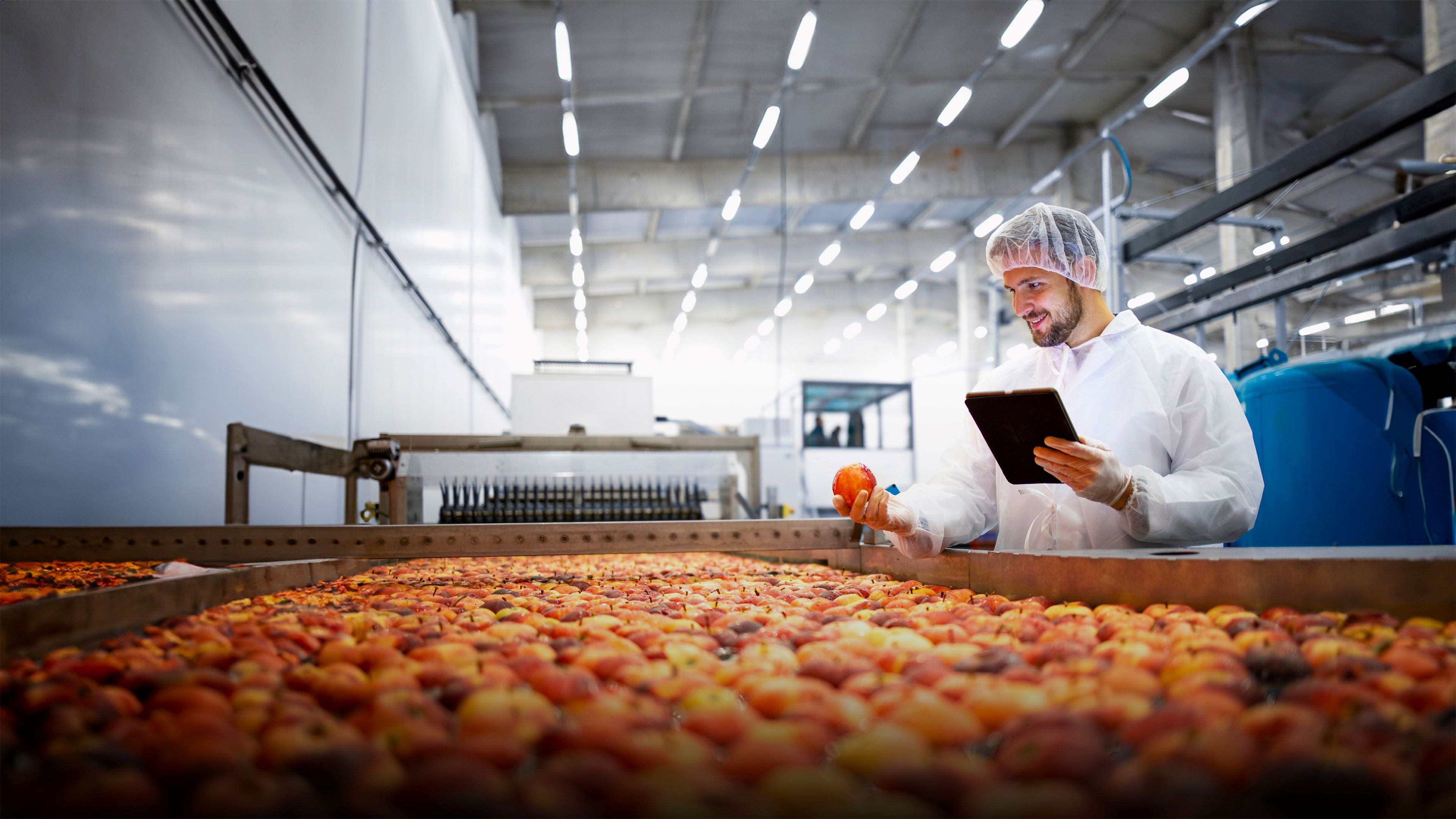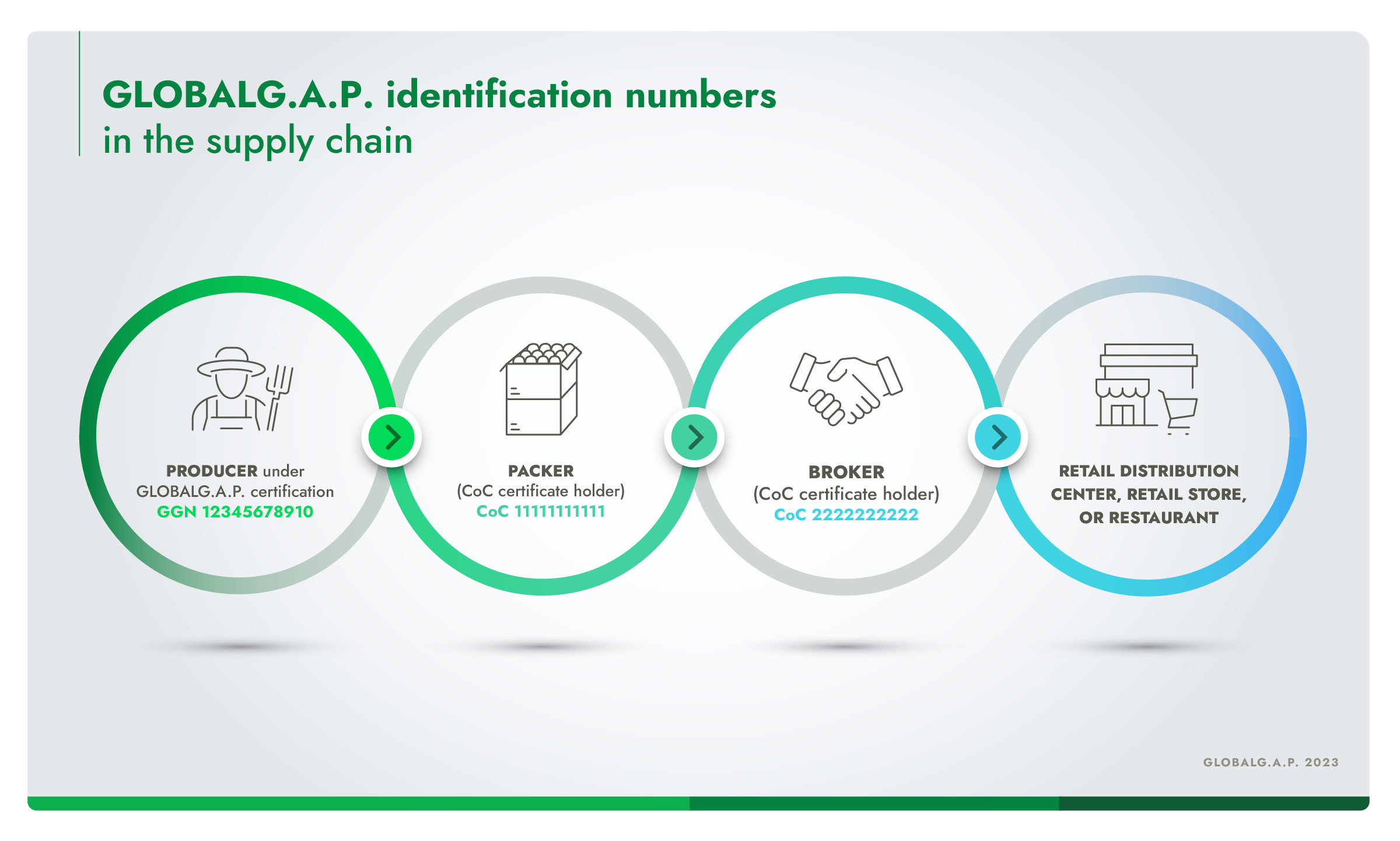
Impact areas and claims
Supply chain traceability
Consumers expect safe food. This means that supply chain participants must implement effective traceability systems for identifying, recording, and therefore enabling the verification of a product’s history and lifecycle as the product passes through the supply chain. Such systems both mitigate the risk of food fraud and facilitate quick action in case of food safety issues.
How does GLOBALG.A.P. promote traceability?
While all of our core farm-level solutions contain traceability criteria, the dedicated GLOBALG.A.P. Chain of Custody standard ensures that the integrity of products originating from GLOBALG.A.P. certified production processes is protected up to the final sale.
Applicable to any company handling or trading products from GLOBALG.A.P. certified production processes, the requirements prevent the substitution, dilution, and misidentification of products along the supply chain. This protects buyers from reputational risk and connects certified responsible farming practices at farm level with a transparent product claim at the end of a custodial sequence.
Traceability topics in GLOBALG.A.P. standards and add-ons
Identification of products via a unique ID number in the GLOBALG.A.P. IT systems
Recall and withdrawal procedures with annual verification of traceability systems
Segregation of products from certified and noncertified production processes
Product handling rules including historical purchase and sales records
Input and output verification through mass balance requirements
Non-conformance and complaint procedure for recording issues and actions
Monitoring of subcontractors that handle products from certified production processes
Worker training on chain of custody requirements and processes

Which GLOBALG.A.P. standards and add-ons cover traceability?
GLOBALG.A.P. Chain of Custody
CoC is a supply chain standard that safeguards the segregation and traceability of products originating from GLOBALG.A.P. certified production processes.
Integrated Farm Assurance for fruit and vegetables
IFA is a global standard that aims to promote safer and more responsible farming practices in fruit and vegetable production.
Compound Feed Manufacturing
CFM is a global feed mill standard for commercial compound feed production processes.
Access GLOBALG.A.P. standard documents
GLOBALG.A.P. standard documents are publicly available, free of charge, and translated into multiple languages. They are developed through a transparent and comprehensive standard setting process that involves stakeholders from across the supply chain and includes scientific and technical expertise, field trials, and public consultation.